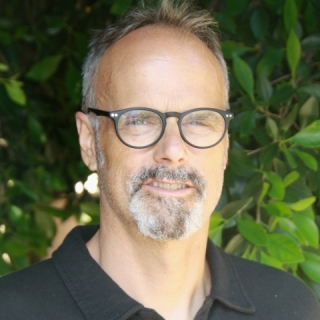
Anthony De Tomaso
Research
Research in our lab is based around the phenomenon of self/non-self recognition (allorecognition) in a primitive chordate organism, Botryllus schlosseri. This allorecognition reaction links a number of disparate fields, including immunology, stem cell, developmental, and evolutionary biology, and also has ecological consequences. Several unique aspects of the Botryllus life history make it a novel, experimentally accessible model organism to ask pertinent questions in these distinct disciplines.
Botryllus individuals undergo a natural transplantation reaction when they come into contact with other members of the same species. Using a combination of genetic, genomic and cell biological approaches, we are focused on understanding the molecular mechanisms which underlie this reaction, which is similar to the MHC-based allorecognition found in the vertebrates, and functionally resembles the way in which bone marrow transplants are recognized and rejected in mice and humans. This allorecognition system exists to prevent the transplant of blood-borne pluripotent stem cells, which once transferred can parasitize other genotypes, replacing their somatic and/or germline tissues. Parasitic abilities are genetically determined and autonomous to the cells themselves, and we are studying the mechanisms which underlie these properties. Transplanted stem cells are able to parasitize other individuals because the adult body plan of Botryllus is colonial, and has an asexual reproductive pathway that can regenerate adult individuals through an independent developmental program lacking any embryonic stages-the only chordate which can do so. The developmental pathways which control the expansion, differentiation, and patterning of asexual regeneration are unknown, and we are studying this process using a variety of techniques. Botryllus occupies a key position in vertebrate evolution, and these studies may provide insights into the origins of many chordate innovations.
